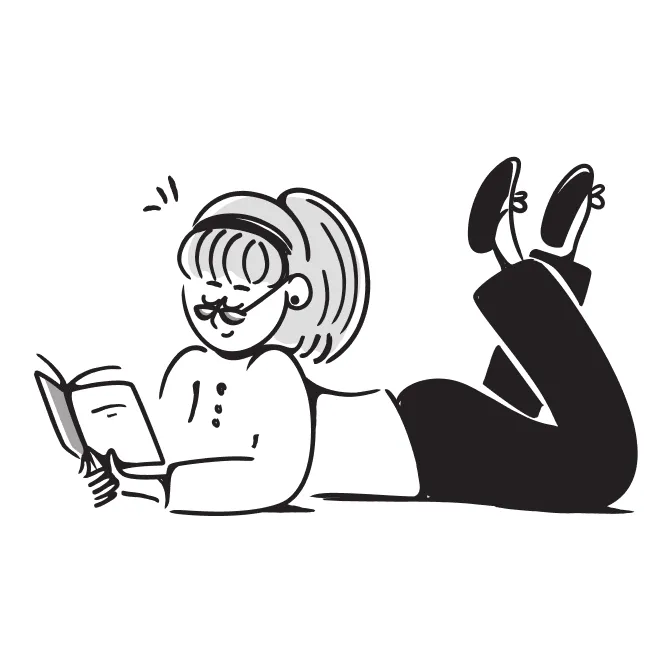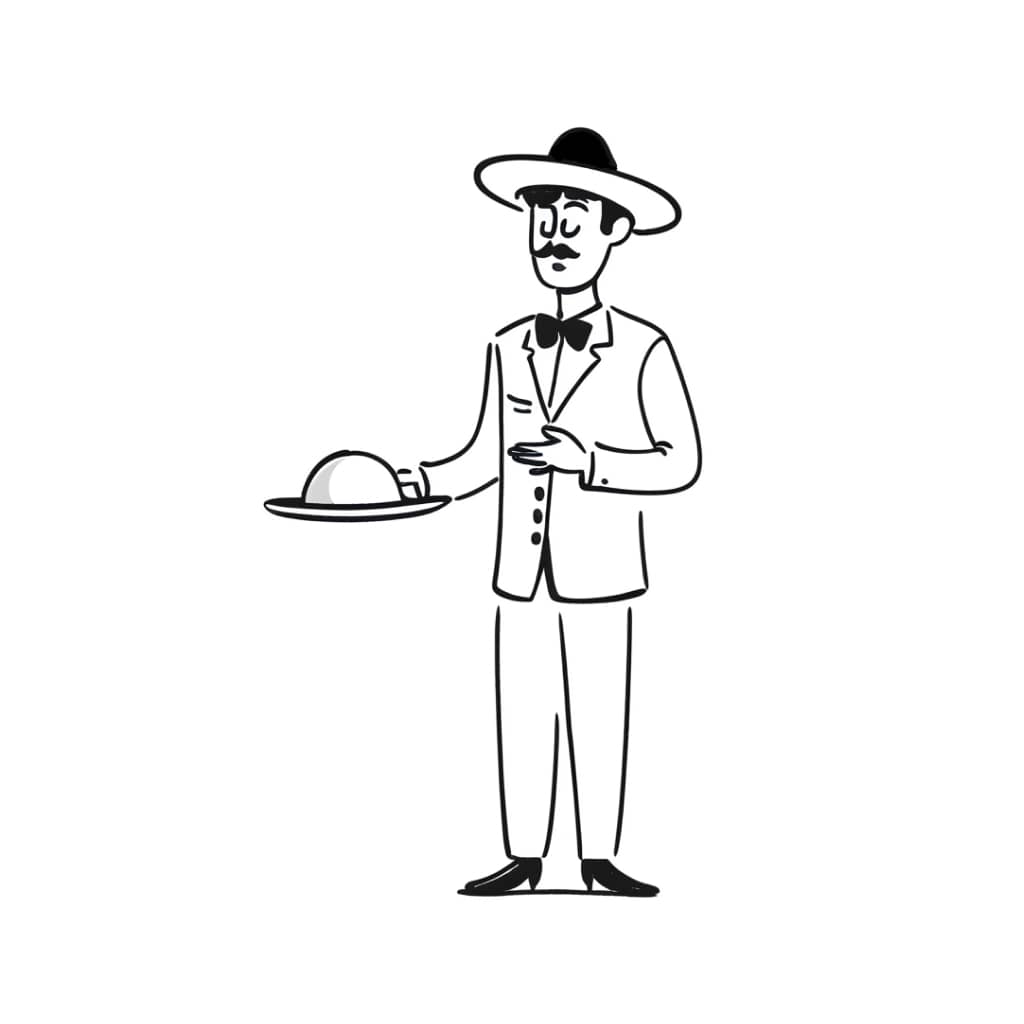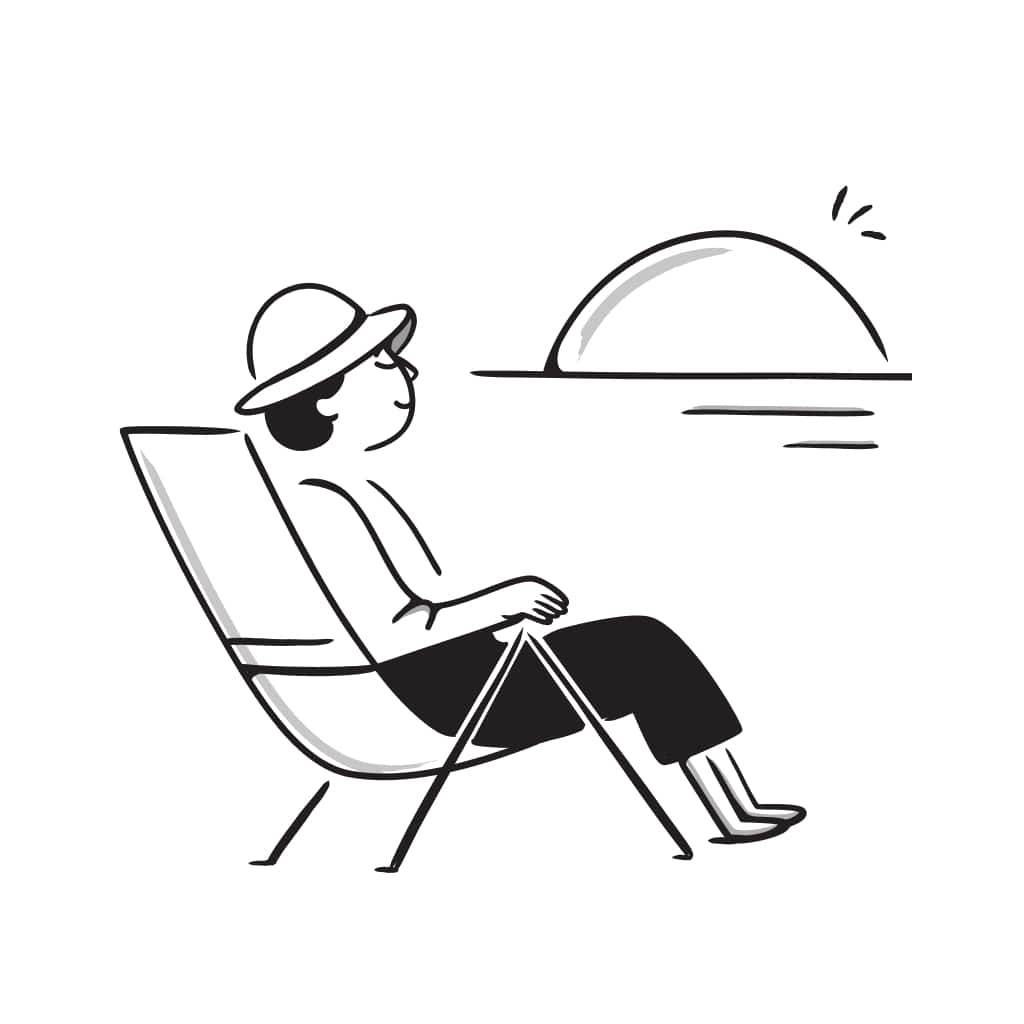This story was designed to help you learn Spanish in context, strengthen comprehension, and absorb vocabulary and grammar naturally through reading, listening, and interactive exercises. It includes a quizz, flashcards, and a writing practice to reinforce your skills. Here's how to maximize your learning:
- Listen and read the story
Play the audio while reading to follow the story naturally. Focus on understanding the main ideas and how the language sounds. The goal is to develop your Spanish listening skills and overall comprehension. - Read again with the translation
Turn on the translation and compare how ideas are expressed in Spanish and English. This builds awareness of Spanish sentence structure and grammar in real use. - Explore the key vocabulary
Below the story, you’ll find important words bolded and listed. This Spanish vocabulary list highlights key words and expressions in context and helps you understand what matters most in the story. - Take the comprehension quiz
Now test your understanding with the quiz. It reinforces the main ideas and helps improve your Spanish reading comprehension with instant feedback. - Review key vocabulary with flashcards
Use the flashcards to practice the vocabulary you just learned. This boosts memory through active recall and strengthens Spanish vocabulary retention. - Try the writing practice
Respond to the writing question related to the story. Use the new words and grammar to create your own sentences. This strengthens grammar and encourages you to think in Spanish. - Practice speaking out loud
Try saying full sentences out loud — or even read the whole story aloud if you feel ready. You can also speak along with the audio, matching the narrator’s voice as closely as possible. This is a great way to improve pronunciation and fluency while building your Spanish speaking confidence. - Review as needed
Come back to the story anytime to review vocabulary, grammar, or anything you found challenging. You can retake the quiz, replay the audio, or go through the flashcards again. Regular review helps reinforce what you’ve learned and build stronger Spanish skills over time.
Key Spanish concepts you'll encounter in this story
Grammar: Imperfect vs. preterite tense contrasts, conditional forms, sequence markers, reported speech with dialogue tags
Vocabulary: Nautical terminology, business expressions, emotional states, travel-related language
Skills: Following narrative development, understanding character motivations, recognizing shifting priorities, interpreting the moral about happiness versus material success
Spanish version
El puerto de Alicante era el lugar favorito de Miguel y Carlos.
Cada tarde, después de las clases, se sentaban en su lugar especial entre las cajas de pescado, mirando los grandes barcos que salían hacia lugares lejanos.
—Un día tendremos nuestro propio barco —decía Miguel, mientras marcaba con un bolígrafo rojo otro lugar en su mapa viejo.
—Lo llamaremos "Libertad" —respondía Carlos.
—¡Y viajaremos por todo el mundo! Primero Tailandia... —añadió Miguel.
—Después Perú, para ver Machu Picchu... —continuó Carlos.
Era lo que hacían cada día: soñar con su barco, dibujar rutas en el mapa y hacer planes para cuando fueran mayores.
Tenían dieciséis años y querían navegar por todos los mares.
Pero la vida en casa de Miguel era difícil. Sus padres no podían pagar las cuentas desde que su padre perdió su trabajo en el puerto.
Una noche, Miguel tomó una decisión.
—He oído que en Londres pagan muy bien —le dijo Miguel a Carlos—. Podría trabajar allí y ahorrar para nuestro barco.
—¿Cómo llegarías? —preguntó Carlos.
—Me esconderé en un barco grande. Ven conmigo —propuso Miguel.
—No puedo, Miguel. Mi madre está enferma y me necesita aquí —respondió Carlos.
—Te entiendo. Te escribiré y cuando tenga suficiente dinero, volveré a buscarte —prometió Miguel.
Esa noche, Miguel se escondió en un barco hacia Londres. El viaje fue difícil, pero tuvo suerte al llegar: encontró trabajo en un restaurante italiano. Giuseppe, el dueño, estaba muy contento con su trabajo.
En cinco meses, Miguel hablaba inglés e italiano lo suficiente para trabajar, y los clientes lo querían mucho. Por su buen trabajo y su manera de ser con la gente, pronto lo hicieron encargado del restaurante.
El trabajo era mucho y no podía volver a España. Pero todos los meses enviaba dinero a sus padres.
Como encargado, tuvo una idea nueva: ganar dinero según las ventas del restaurante en lugar de un salario normal. Giuseppe aceptó, y con Miguel, el restaurante ganó el doble de dinero en seis meses.
Giuseppe confiaba tanto en Miguel que venía cada vez menos al restaurante. Un día, le ofreció a Miguel ser dueño de la mitad del negocio si se hacía responsable de todo.
Era una oportunidad tan buena que Miguel no podía decir que no. Un año después, Giuseppe se retiró y Miguel compró todo el restaurante.
Durante diez años, Miguel abrió siete restaurantes en Londres. Trabajaba muchas horas cada día, tenía muchos empleados y mucho dinero.
Pero ya no pensaba en sus sueños de joven y con el tiempo dejó de escribir a Carlos.
Todo cambió cuando recibió una carta de España. Carlos había muerto en un accidente de coche. La noticia lo puso muy triste.
Recordó cuando eran jóvenes y hacían planes para viajar juntos, sentados en el puerto. Habían prometido ver el mundo juntos, pero la vida los llevó por caminos diferentes.
Esta pérdida hizo que Miguel pensara mucho. Entendió que el dinero no era lo más importante. Durante semanas, no podía dormir pensando en todos los sueños que había olvidado por trabajar tanto.
Tomó una decisión importante: vendió todos sus restaurantes, volvió a España y compró un barco. Lo llamó "Carlos" por su amigo.
Hoy, mientras viaja por el Mediterráneo en su primera gran aventura, Miguel es realmente feliz.
En su barco tiene una foto de Carlos y el viejo mapa con todos los lugares que querían visitar.
Ha aprendido que a veces necesitamos perder algo importante para recordar lo que de verdad importa en la vida. El dinero le dio seguridad, pero seguir sus sueños le dio felicidad.
Cada nuevo lugar que visita le recuerda que nunca es tarde para cambiar y buscar lo que nos hace felices por el camino.
Spanish story with English translation
El puerto de Alicante era el lugar favorito de Miguel y Carlos.
The port of Alicante was Miguel and Carlos's favorite place.
Cada tarde, después de las clases, se sentaban en su lugar especial entre las cajas de pescado, mirando los grandes barcos que salían hacia lugares lejanos.
Every afternoon, after classes, they would sit in their special spot among the fish boxes, watching the large ships that departed for distant places.
—Un día tendremos nuestro propio barco —decía Miguel, mientras marcaba con un bolígrafo rojo otro lugar en su mapa viejo.
"One day we'll have our own boat," Miguel would say, while marking another place on his old map with a red pen.
—Lo llamaremos "Libertad" —respondía Carlos.
"We'll call it 'Liberty'," Carlos would reply.
—¡Y viajaremos por todo el mundo! Primero Tailandia... —añadió Miguel.
"And we'll travel all around the world! First Thailand..." added Miguel.
—Después Perú, para ver Machu Picchu... —continuó Carlos.
"Then Peru, to see Machu Picchu..." continued Carlos.
Era lo que hacían cada día: soñar con su barco, dibujar rutas en el mapa y hacer planes para cuando fueran mayores. Tenían dieciséis años y querían navegar por todos los mares.
That's what they did every day: dream about their boat, draw routes on the map, and make plans for when they were older. They were sixteen years old and wanted to sail all the seas.
Pero la vida en casa de Miguel era difícil. Sus padres no podían pagar las cuentas desde que su padre perdió su trabajo en el puerto. Una noche, Miguel tomó una decisión.
But life in Miguel's home was difficult. His parents couldn't pay the bills since his father lost his job at the port. One night, Miguel made a decision.
—He oído que en Londres pagan muy bien —le dijo Miguel a Carlos—. Podría trabajar allí y ahorrar para nuestro barco.
"I've heard they pay very well in London," Miguel told Carlos. "I could work there and save for our boat."
—¿Cómo llegarías? —preguntó Carlos.
"How would you get there?" asked Carlos.
—Me esconderé en un barco grande. Ven conmigo —propuso Miguel.
"I'll hide on a large ship. Come with me," Miguel proposed.
—No puedo, Miguel. Mi madre está enferma y me necesita aquí —respondió Carlos.
"I can't, Miguel. My mother is sick and needs me here," replied Carlos.
—Te entiendo. Te escribiré y cuando tenga suficiente dinero, volveré a buscarte —prometió Miguel.
"I understand. I'll write to you and when I have enough money, I'll come back for you," promised Miguel.
Esa noche, Miguel se escondió en un barco hacia Londres. El viaje fue difícil, pero tuvo suerte al llegar: encontró trabajo en un restaurante italiano. Giuseppe, el dueño, estaba muy contento con su trabajo.
That night, Miguel hid on a ship bound for London. The journey was difficult, but he was lucky upon arrival: he found work in an Italian restaurant. Giuseppe, the owner, was very pleased with his work.
En cinco meses, Miguel hablaba inglés e italiano lo suficiente para trabajar, y los clientes lo querían mucho. Por su buen trabajo y su manera de ser con la gente, pronto lo hicieron encargado del restaurante.
Within five months, Miguel spoke enough English and Italian to work, and the customers liked him very much. Because of his good work and his way with people, they soon made him the manager of the restaurant.
El trabajo era mucho y no podía volver a España. Pero todos los meses enviaba dinero a sus padres.
The work was a lot and he couldn't return to Spain. But every month he sent money to his parents.
Como encargado, tuvo una idea nueva: ganar dinero según las ventas del restaurante en lugar de un salario normal.
As manager, he had a new idea: to earn money based on the restaurant's sales instead of a normal salary.
Giuseppe aceptó, y con Miguel, el restaurante ganó el doble de dinero en seis meses.
Giuseppe accepted, and with Miguel, the restaurant earned twice as much money in six months.
Giuseppe confiaba tanto en Miguel que venía cada vez menos al restaurante. Un día, le ofreció a Miguel ser dueño de la mitad del negocio si se hacía responsable de todo.
Giuseppe trusted Miguel so much that he came to the restaurant less and less. One day, he offered Miguel to become owner of half the business if he took responsibility for everything.
Era una oportunidad tan buena que Miguel no podía decir que no. Un año después, Giuseppe se retiró y Miguel compró todo el restaurante.
It was such a good opportunity that Miguel couldn't say no. A year later, Giuseppe retired and Miguel bought the entire restaurant.
Durante diez años, Miguel abrió siete restaurantes en Londres. Trabajaba muchas horas cada día, tenía muchos empleados y mucho dinero.
For ten years, Miguel opened seven restaurants in London. He worked many hours each day, had many employees and a lot of money.
Pero ya no pensaba en sus sueños de joven y con el tiempo dejó de escribir a Carlos.
But he no longer thought about his youthful dreams and eventually stopped writing to Carlos.
Todo cambió cuando recibió una carta de España. Carlos había muerto en un accidente de coche. La noticia lo puso muy triste.
Everything changed when he received a letter from Spain. Carlos had died in a car accident. The news made him very sad.
Recordó cuando eran jóvenes y hacían planes para viajar juntos, sentados en el puerto. Habían prometido ver el mundo juntos, pero la vida los llevó por caminos diferentes.
He remembered when they were young and made plans to travel together, sitting at the port. They had promised to see the world together, but life took them on different paths.
Esta pérdida hizo que Miguel pensara mucho. Entendió que el dinero no era lo más importante. Durante semanas, no podía dormir pensando en todos los sueños que había olvidado por trabajar tanto.
This loss made Miguel think a lot. He understood that money wasn't the most important thing. For weeks, he couldn't sleep thinking about all the dreams he had forgotten because of working so much.
Tomó una decisión importante: vendió todos sus restaurantes, volvió a España y compró un barco. Lo llamó "Carlos" por su amigo.
He made an important decision: he sold all his restaurants, returned to Spain, and bought a boat. He named it "Carlos" after his friend.
Hoy, mientras viaja por el Mediterráneo en su primera gran aventura, Miguel es realmente feliz. En su barco tiene una foto de Carlos y el viejo mapa con todos los lugares que querían visitar.
Today, as he travels around the Mediterranean on his first great adventure, Miguel is truly happy. On his boat he has a photo of Carlos and the old map with all the places they wanted to visit.
Ha aprendido que a veces necesitamos perder algo importante para recordar lo que de verdad importa en la vida.
He has learned that sometimes we need to lose something important to remember what truly matters in life.
El dinero le dio seguridad, pero seguir sus sueños le dio felicidad. Cada nuevo lugar que visita le recuerda que nunca es tarde para cambiar y buscar lo que nos hace felices por el camino.
Money gave him security, but following his dreams gave him happiness. Each new place he visits reminds him that it's never too late to change and seek what makes us happy along the way.
Master A1 Spanish with 120+ stories
Start using Spanish in real life with our complete story-based course.
Join the waitlist for exclusive early-bird pricing.
Join waitlist

























Comments section for language learners